
No good deed goes unpunished.
This is a melodramatic story about a badass assassin Shen Lige and Liu Yikang, titled Prince Pengcheng who was best known for reforms that heralded a golden age for the short lived Liu Song dynasty (420-479). In real life, Liu Yikang was probably a dull and dusty fellow who promulgated legislation and ably shouldered the burden of tedious administrative tasks artfully dodged by his brother the allegedly sickly emperor Wen. In this romanticized account, Pengcheng falls in love with the beautiful and deadly Lige, who helps him drain the swamp and weed out a bunch of corrupt and rebellious aristrocrats who are disenfranchised by his reforms.Shen Lige (Li Qin) must be one of the strongest, most badass, most lethal and most gorgeous female leads of c-drama. She makes a grand entrance and her character is awesome up until the bitter end and is the strongest selling point of this drama. Li Qin's acting is so superb her Lige is powerful, engaging, fierce yet still feminine and her expressions are nuanced and emotionally on point. Initially I was not convinced on her pairing with Qin Hao - he is obviously quite a bit older and her "lao tou"/old dude jokes did not help. But Qin Hao is a very compelling actor and in no time, I was rooting for Lige and Pengcheng. While their chemistry is not sizzling or deeply passionate, they are both smart characters that are clearly on the same wavelength and make a formidable team. That said, I feel an actor of Qin Hao's caliber was somewhat wasted on a role such as Pengcheng - he would have made a far more compelling villlain. I also did not like the noticeable skin smoothing they did on him which obscured his micro expressions.
All of the characters in this drama are just simply fantastic. How can you not love Prince Jingling who has the best, most subtly comical facial expressions? Or the completely adorable, wholesome loving, humble devoted goodness that is Shen family? Or the mischevious Zijin and Lige's loyal assassin fraternity? There are so many wonderful, well written characters that are charismatically portrayed and interact with so much chemistry and rapport that you can't help falling in love with them. Guard your hearts carefully though because one of the key takeaways of this drama is that no good deed goes unpunished and compassion and mercy is repaid with treachery and murder. Of course we can't expect all of the characters to survive but there have to be enough survivors to keep us invested in the drama and this one barely makes it. The deaths also have to be "good deaths" at the hands of a worthy opponent and not at the hands of say a puny mutant ninja flying cockroach.
Very much like its predecessor Weiyoung, the villains in this drama are quite enjoyable almost cartoonlike caricatures with very dramatic, somewhat comical facial expressions. Lu Yuan is an excellent, overpowering villian. And Consort Sun relishes hamming it up so much at many points she appears on the verge of cracking up with laughter. However, there are also too many repetitive petty villains with cliché motives and too many lives. The main villains and in particular the mastermind in black (whose identity was obvious quite early on) are interesting characters that should have been better developed instead of digressing into sibling rivalry, green eyed monster and excessive bitch slapping tropes. Unfortunately, the villain spotlight was hijacked by the very pretty Shen Leqing, a well acted but two dimensional character with pedestrian motives. I guess in life and in art, men can see better than they can think.
The story writing is where this exhausting melodrama falls down hard. The plot is predictable and smacks of Weiyoung. Heavy suspension of disbelief is needed because from the get go, a lot of things that don't make sense happen. I rolled my eyes so often that I can no longer tell if my right and left eyeballs have exchanged sockets! But the acting is so delightful and there are so many thrilling moments that for the first 20+ episodes I went with it. At some point however, the excessive plotting and the rollercoaster ride of emotional ups and downs as beloved characters are mowed down with reckless impunity while petty villains survive against improbable odds becomes simply too much. The drama peaks in the mid-30s after the most well developed villain is felled and it further loses momentum after some of my best loved characters are gratuitously killed off. It limps through some repetitive sub-plots towards an unexpectedly good ending which I almost missed because I wasn't that motivated to finish. I find the writers of this drama guilty of writing under the influence of alcohol. They tortured my eyeballs with cruel and reckless depravity and are hereby sentenced to writing commercials for the next 15 years. The surprisingly fitting ending qualifies them for probation after 8.0 years, which is also my rating for this drama.
There seems to be some confusion over the ending so I am copying my a spoiler tagged explanation of what happened from the threads to the comment section of this review.
Was this review helpful to you?

True Lies
This must watch crime drama hooked me from the start and commanded my undivided attention till the end. My review is going to be brief because for this drama, spoilers will vastly diminish your viewing experience so best steer clear of the threads until you are done.Three children from broken families - Zhu Chao Yang (Rong Zishan), Yan Liang (Shi Pengyao) and Yue Pu (Wang Shengdi) accidentally record footage of a murder in progress. They bite off more than they can chew when they go toe to toe with the murderer in a deadly cat and mouse chess game that could lead to mutually assured destruction. This is brilliantly written and superbly acted, with dynamic relationships, complex emotions and mirror lead antagonists. The sophisticated and nuanced performances of all three child actors and notably Rong Zishan are impressive beyond words. They are surrounded by a veteran cast that deftly portrays realistic, empathetic characters with very human failings. This is a dark story about how social and familial pressure and occasionally just darn bad luck can make people do both deeply moving and terrifyingly chilling things. The suspense builds naturally as a result of gripping storytelling and acting and is not artificially induced by music.
As a mystery buff, I have loved the unreliable narrator style of storytelling since I read Agatha Christie's "The Murder of Roger Ackroyd". The kind of darkness of human nature explored in this drama also coincides with my other Christie favorite "Crooked House" so this drama checks all my boxes. However, the adaption of this type of narrative style to film is incredibly difficult and usually disappointing - the movie version of Ian McEwan's Atonement is a classic example. So I am just bowled over by how meticulously and insidiously well executed The Bad Kids is. Even if you watch this without blinking, you will inevitably miss many of the true lies and scratch your head as to when and where the lines between fact and fantasy get blurred. There is no shocking "Aha!" moment - indeed initially I was convinced with and unquestioning of my first impression of what happened. I fell for the fairy tale hook, line and sinker. And then insidiously, all the alternate possibilities started to creep up upon me and drew me into re-watching. I watched this two times and and parts of it more than that and yet the ambiguities and different possibilities persist. That is actually what is fascinating, thrilling, chilling and absolutely mind blowing about this experience.
Of course there are some mild logic flaws but this is truly so well executed there is little to pick at without being petty. I can't praise this enough, it has to be the best crime/mystery I have watched as of June 2020. It can hold its own relative to the best in class of this genre not just in China but anywhere and everywhere. Two thumbs up!!!
Was this review helpful to you?
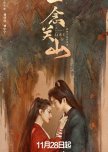
Drink the finest wines, look at lovely girls, make the best friends, and fight glorious battles.
Spymaster Ning Yuanzhou and his elite Liudao Tang spies are tasked to escort a Wu diplomatic delegation to An to pay a king's ransom for their captured ruler. He encounters the stunning and deadly Ren Ruyi, a vengeance driven assassin nonpareil who defected from An. They have overlapping goals and form a wary alliance. Predictably, these aging-out, disillusioned operatives from opposite sides fall in love and indulge in a mid-life crisis amidst a suicide mission to rescue the foolish Wudi. This is an unexpectedly funny drama and the humor works well but masks the monumental task ahead of the delegation. Its best achievement is it makes us fall in love with a motley crew of unforgettable, flawed characters to the point we root for them against all odds and beyond reason.This is a rare drama where I am more invested in the supporting cast than the main leads. Written by a feminist writer, Ren Ruyi is literally superwoman; independent, ruthless and indomitable; an indestructible one woman killing machine with fantasy level combat abilities. Ning Yuanzhou also walks on water; a master spy whose machinations decide who sits on the thrones of both states. Together they are so formidable that it seems more efficient to skip the mission or war as they can easily topple any ruler in their way. These over the top character designs with exaggerated abilities and superficial flaws rarely resonate with me. But I did derive petty enjoyment from their bitch slapping, scolding and kicking ass through the two kingdoms.
The casting of Liu Yuning and Liu Shishi in the leading roles is brilliant. While there are better actors, these roles play to their individual strengths and they both executed well. Liu Yuning plays a character that hides in plain sight. A too pretty actor would not work in this role. And Ren Ruyi the stone cold killer is perfectly reflected in Liu Shishi's stoic expressionless face and bright hard eyes. Even as she becomes less guarded and warms up to the delegation, there is bare of relaxation of her taut features; every frown and smile is controlled. Her head is at an exhausting elevated angle that made me wonder if she has frozen shoulder. Even her grief is so beautiful in a restrained way that I was unaffected, even mildly irritated at her cry scenes. Such an aloof portrayal made their chemistry seem decent but did not light up the screen . So it didn't matter to me if they made it out at the other end. As fully realized characters that live and die by the sword, they know the score. Their romance peaks too early, had few true obstacles and repetitive fan service sweet nothings moments . The heavy handed messaging about women's biological clocks annoyed me.
The more interesting characters are the young ones, Yang Ying and Li Tongguang, both on heroes journeys. He Landou delivers a inspiring portrayal of an uncertain young princess completely in over her head, overcoming fear, heartbreak and every obstacle to emerge as a purposeful person with the the courage of her convictions. At surface Li Tongguang appears to be a fascinating character; strong, smart, ambitious and charming. Unfortunately he has a dark side, an odd and creepy Oedipus complex for his shifu. Part of the problem is this narrative doesn't invest in villains; most antagonists are killed off so quickly they leave no impression. Thus Li Tongguang becomes the default fall guy; whenever something bad has to happen to create angst or move the plot along, it is pinned on him. Nonetheless the role is well played enough that I had a soft spot for the character throughout.
Saving the best for last, Fang Yilun's Yu Shisan stole the show as far as I am concerned. I love flawed, humorously self-aware, very mortal characters like this with no special powers or death defying abilities. Hopefully Fang Yilun's amazing comedic expression and timing gets noticed. His shock and aghast at the idea he was falling in love made me shake with laughter and moved me unaccountably at the same time. When he prosaically warns his love not to fall for a rogue like him, I knew she was as much a lost cause as I was. Shisan is the unsung hero of this story. He picks up the slack so that Yuanzhou can rescue Ruyi and was there for Qian Zhou, Sun Lang and Yuan Lu through the last legs of their mission. He remained true to his life's mantra to live fully with no regrets: drink the finest wine, look at lovely girls, make the best friends, and fight glorious battles. / 这辈子就要喝最烈的酒, 看最美的姑娘, 交最好的朋友, 打最漂亮的仗. It is too bad he did not dare to or did not believe he had the right to love and thus denies his heart to finish the job. If I could have changed just one thing, I would have had Shisan leap on to that horse along with his love. The other flawed character I enjoyed immensely is Wudi. After Shisan, he made me laugh hardest, especially during the great escape. He also moved me with his profound regret and intent do better.
This drama has a linear plot that is not well paced; it either advances at a high speed that glosses over logic holes or stalls out to dwell on repetitive romantic or delusional tropes. The harder you look at the plot, the less it makes sense. As it is more of a character story, I am willing to be forgiving as long as important characters are not destroyed along the way. In that aspect, the drama starts out exceptionally well with a fantastic core of well conceived, multi-layered and compelling characters. Unfortunately, the character designs start to break down quite early on, with Li Tongguang. The ending was rushed, had some sloppy edits and packs in an unnecessary Wu arc. Too many characters are destroyed into the finale including Ruyi and Yuanhou. Ruyi prioritizes her personal agenda, bites off more than she can chew (again) and had to be rescued (again); forcing Yuanzhou to choose his love over his mission. Consequently they were not there when Liudao Tang needed them most. Finally, Ruyi makes a decision that is not true to herself or to her beliefs about living well. After investing so much on Li Tongguang, this character has no development and mucks everything up in the finale. The ending was was bloodier than I expected and unnecessarily cruel. I didn't have a huge issue with the outcome in and of itself, just the figurative character assassinations.
As for the ending scene, upon re-watch, I realized it is not confusing, it simply pays homage to the meaning of the drama's title Yī Niàn Guān Shān / 一念关山 or A Thought of Guanshan and closes the drama on a note of finality. It is a line from an ancient poem 却东西门行/But the East West Gate written by Shen Yue during the Northern and Southern dynasties. It is a sad poem reflecting on life, the passage of time and destiny. Guanshan/ 关山 refers to memories spanning the mountains and rivers (meaning the far reaches of the empire); of past events joyful and sorrowful. It is an Auld Lang Syne moment where someone who lived on longs for the bygone years and lost friends. It is unnecessarily cruel to close the story with a character that was meant to move on with their life. The bigger point is everyone they are thinking of did not make it out at the other end. The ending to me is not ambiguous.
I enjoyed many parts of this drama which started out as an 8.5 for me but there were draggy parts, key characters got destroyed, all the holes become obvious with re-watch and the ending is just not good. It is still a wonderful watch with lovable characters, fabulous fight scenes and divine comedy. I am just petty and I won't forgive them for Yu Shisan. My final rating is 8/10.
ENDING SPOILER COMMENTS
The final scene is actually very clear.:
Ten years later, the countries are at peace. He County which was the frontier battleground is prosperous and thriving; children are well schooled but the naughty ones sneak out to play. Chu Yue visits the battleground which with a decade of peace is covered with grass. She takes a moment to think of the past, of everyone that sacrificed and imagines either what could have been or that they are in another place. Her fantasy doesn't have to make complete sense because it is just her imagination. The child she sees on the horse is not the same younger child that sneaks out of school. Ning Shisan on the horse is older, with loose hair in a pure white outfit. Chu Yue should not be in this scene. Shisan denied his heart to set her free. He saved her and meant for her to go on, to love and live life with no regrets. It enraged me that they did this to poor Chu Yue and it would have broke Shisan to see her like this.
Ruyi should have been in that end scene, possibly with a son and a daughter. She could have escaped and remained true to her promise to Yuanzhou to go on without him, that a woman can live well without love. The drama foreshadowed many times that she would be last woman standing and yet they both literally and figuratively killed her character when she chose to blow herself up after assassinating the Beipan king and prince. Ruyi had a choice and the one she made sends all kinds of wrong messages to women everywhere. The only woman who remained true to herself was Yang Ying. She moved on, made the best of her situation and lived well regardless. If Ruyi had to die, the end scene should have closed with Yang Ying instead of Chu Yue.
I also think they should not have killed off Wudi. The team put themselves in harms way to bring him back; he learned some hard lessons and would have been a much a better ruler for it. They killed him off so that Yuanzhou could play kingmaker. It was a rushed, completely dumb, ridiculous and gratuitous Wu subplot that negates poor Qian Zhou and Chai Ming's sacrifice. I could go on but these are some of the main reasons I am so let down by the ending.
Was this review helpful to you?

Cat's paw.
The disturbingly elegant and noble Lan Jue, courtesy name Peizhi, is the picture of a rising young Vice Minister of Rites. Beneath his urbane facade, he conceals a burning purpose to clear his father's name in a two-decade-old treason case. In this quest, he is quite bendable with regard to the means that justify his ends. He is stymied at each turn by Zhang Ping, an impecunious scholar, noodle maker, and truth seeker. Zhang Ping is convinced Peizhi is a villain and is determined to bust him. Peizhi is cynically amused by Zhang Ping's naive righteousness and impressed with his deductive talent. He means to make use of him if he can and if not, dispose of him. Watching Zhang Ping go from being Peizhi's cat's paw to someone he raises kittens with is the best part of this drama for me.This high-production-value drama conjures a sinister, suspenseful aura that permeates the stylish, lavish existence of the Dayong elite. Everything from the set design to that ridiculously mysterious and beautiful opening dance, to Peizhi's floaty diaphanous costumes, to Peizhi's long, sensuous unbound hair reflects, elegance, refinement, and impeccable taste... aside from Song Weilong who obviously drew the short style straw starting with the rigid wig and the way his outfits look like they were slept in. It is no wonder Peizhi's old flame is less than impressed with the goofy, big-boned, toothy peasant with a big nose to boot that Peizhi traded down to. It does require suspension of disbelief considering how utterly appealing both the ardently devoted Mowen and frostily sophisticated Shulin are. The only explanation is Peizhi must be an eyelash man.
This is a bit unusual for the mystery genre in that it is far more of a character-driven story than it is plot-driven. As far as the cases go, they are well executed and unfold more as procedurals. Outside of certain aspects of the main conspiracy, the viewer is not given a fair chance to solve any of the cases. There are plot design shortcuts such as resorting to the water illusion trick to bridge memory gaps and uncover long-lost evidence and there are logic holes, such as crime scenes staying undisturbed for too long. While the over-arching conspiracy is well conceived with decent twists, it is not that original. The villains reveal themselves early on so it is also anti-climatic. But for once I don't really mind because Jing Boran's Peizhi is just too bloody distracting. How can a man look so damn indecent, almost naked with just his hair unbound? And my mouth goes dry at the subtle multi-partied flirtations - those deep searching and revealing looks these gorgeous men keep exchanging with one another. It is such a big upgrade from the typical stunned dead duck stare of conventional romances. I freely admit my brain went on strike so often I am grateful the solutions were just spoon-fed to me.
This drama is superbly well executed and gets all the important things right. Any shortfalls in the plot are made up for in excellent character design and heartfelt, immersive performances by the cast. Jing Boran and Wang Duo deliver standout performances but even Song Weilong, whose acting is still a work in progress, is so well cast he just somehow fits this Zhang Ping character. It is a shame that his scenes with Jing Boran obviously suffered heavy cuts. After all of the build-up, I was really looking forward to seeing Zhang Ping and Peizhi shine in the final arc. Instead, it is pretty much hijacked by Shulin's unfinished business with Peizhi and his abandonment issues. Everyone else including Mowen and the emperor is sidelined. As much as I love Shulin's complexity and Wang Duo's phenomenal acting, I have mixed feelings about the final arc. The tone feels a bit off and succumbs to a tad too much cliched, dog's blood melodrama. I think that Zhang Ping's newfound pragmatism and epiphany that the right outcome can be more important than the truth is fitting. It demonstrates enormous character growth even though justice proved to be ultimately elusive.
Moral of the story: Don't be a cat's paw - be careful who you date!
Overall a feast for the eyes and the senses - 8/10.
Was this review helpful to you?

I kissed a girl just to try it.
This crisp, cleverly written coming-of-age movie with a bit of a twist, explores the usual themes of first love, rejection, self-discovery, and accepting your family for who they really are. It is carried by persuasive and heartfelt performances by both Wu Lei and Zhang Zifeng whose restrained, nuanced portrayals convey the confusion of awakening youth and the utter depth of despair of first love and rejection. In this genre, young actors tend to lose my empathy by over-dramatizing and overacting in such angsty moments but these two truly moved me by not doing so. I also appreciate the well-timed light humor that diffuses tense moments and captures the ultimate resilience and optimism of youth.Zheng Yuxing and Chen Chen couldn't be more different - he is a bit of a rebel, the cool kid with a bit of internet following while she is a good student with bright prospects who unexpectedly flunks out. Thrown together by an outrageous lie, a mutual understanding that becomes a touching, unexpected relationship blossom between them. They embark on a most excellent adventure together as Chen Chen convinces Yuxing he must confront Ming, who is breaking his heart. Instead, they end up facing their feelings for each other and what it means for each of them culminates in an "I kissed a girl just to try it" kiss that says all that needs to be said. The chemistry between both leads is incredible and is exactly as it should be. I can't praise enough how these two young actors effortlessly show us rather than tell us the complex multitude of emotions they are experiencing.
Unfortunately for Yuxing and Chen Chen, there are too heavy consequences for their actions. Once again we see that young people are so much better people and I am left hoping these two stay that way on their long journey ahead. The ending is realistic with the right touch of wistfulness and hope.
So now is the time to confess that I only watched this because I wanted to see my favorite Wu Lei of unforgettable Fei Liu fame's first screen kiss. Needless to say, I got much more than I bargained for. While this movie has received backlash for not being upfront about what it is about, I think that criticism reflects a lack of understanding that that is the whole point. Who is Ming? That is the most irrelevant detail because it changes nothing. Yuxing's emotions, Chen Chen's emotions, our emotions, and our experiences are the same regardless of certain aspects of our identity.
The premise of this movie isn't the most original but the way it communicates its simple message is. And the acting deserves a standing ovation. This is an 8.5 for me with a strong recommendation to watch.
Was this review helpful to you?
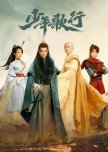
Sword in hand, righteous in heart. 手中握剑, 心中有义.
It was a windy and snowy day. Lei Wujie, a young swordsman wanders into a remote snow-capped inn. Xiao Se, the richly garbed innkeeper is set upon by bandits. The valiant Wujie intervenes and a fiery battle ensues. Appalled by the destruction, Xiao Se travels with Wujie to Xueyue City to collect usurious compensation. Along the way, they are caught in a vicious multi party melee over a mysterious golden coffin. They are swept out of harm's way by Wuxin, a powerful and enigmatic unordained monk. Thus begins the adventures of a loan shark innkeeper, an intrepid airhead and an irreverent monk. On their journey, they make as many deadly enemies as they do lifelong friends. Sword in hand, righteous in heart 手中握剑, 心中有义, the young friends set out on a quest for justice and their vision of jianghu or the martial world. In jianghu there is no absolute right or wrong, just an individual sense of morality and righteousness; the higher values that each swordsman is willing to give their life to protect.This addictive, high fantasy wuxia captures the spirit of rivers and lakes and the thirst of the wanderer to see where the skies end. The hilarious banter and unlimited friendship between the trio and their ever growing circle is immersive and exhilarating. I love that despite his superpowers, Wuxin needs Xiao Se to bankroll their travels and Lei Wujie has no sense of direction and gets Xiao Se lost all the time. Xiao Se (萧瑟; desolate) is a lonely and guarded character with a subtle air of loss and disappointment cloaked in sarcasm and arrogance. From the first instance he shares a curious understanding with Wuxin, another itinerant character with a cryptic past. They are both brilliant, complex and somewhat broken characters seeking answers and redress. Though younger in years, Wuxin is a wise, almost omniscient old soul, who is more at peace with his past than Xiao Se is. They find solace in Lei Wujie's simplistic, pure hearted idealism; his fearless youthful optimism and sense of invincibility. They are the core that attracts other great talents such as the redoubtable eldest martial brother Tang Lian, the strategic Ye Ruoyi, the divine healer Hua Jin and the sticky as fly paper Sikong Qianluo.
There is a lot to unpack in this story, beginning with the abundance of flamboyant and formidable jianghu characters. My personal favorite is Baili Dongjun, lush brewmaster and first city lord of Xueyue City. The prequel 少年白马醉春风 The Young Brewmaster's Adventure chronicles the youthful adventures of the colorful older generation of martial heroes. This explains the richly defined jianghu universe of legendary heroes and weapons and the fully realised characters with deep relationships and substantive backstories. Many surrounding characters are heroes of their own sub-plots that unfold alongside without seeming to digress from the main storyline. Loyalties notwithstanding, all five sword deities are moving and fascinating characters that make me want to know how their journeys begin. This drama is said to stay true to the original and the well loved manhua. This is likely due to the involvement of the novelist Zhou Munan (周木楠), whose prose is witty and simple, yet profoundly zen.
As the heroes converge on the capital, Tianqi City, the plot takes a political turn. The emperor is ailing and they are caught up in the battle for the throne between Prince Bai and Prince Chi. They race against time to unravel the old conspiracy that led to the downfall of Lord Langya many years ago. Fans of Langya List 琅琊榜 or Nirvana in Fire will recognise immediately that beyond the ranking of heroes, large chunks of this story pays homage to that masterpiece. The plot climaxes in an epic and heartbreaking denouement that reveals all the hard truths. While some villains could be better fleshed out and get off too lightly, the ending ties up all loose ends. Nirvana in Fire left me inconsolable but I am uplifted by how this version of the age-old battle for the throne story ends. Heaven's will does not always prevail over man's will; we have a choice in whether to take the lonely road or the one that is filled with friends.
It is obvious from the production values that the budget is modest at best but money is spent in all the right places. The styling of each characters is distinct and eye-catching and their weapons are badass. The fight scenes are intense, well choreographed, fast moving and exciting; the hallmark of a good wuxia. Each sect and swordsman have signature battle techniques and advantages that are well conceived and awe inspiring.
The acting is impressive and anchored by charismatic portrayals and compelling chemistry between Liu Xueyi's Wuxin and Li Hongyi's Xiao Se. Both characters are by far the fan favorites. Many characters were so well portrayed they deliver lingering impact beyond their screen time. The only notable exception is Sikong Qianluo, a cartoon character that has zero chemistry with Xiao Se. Someone must have sent them the wrong script because they seem to be acting out the role of the lovesick fangirl accosting a celebrity actor. But romance is peripheral in this saga and there are more riveting ones such as Li Hanyi and Zhao Yuzhen's story as well as that of Tang Lian and Fairy Rui.
This is a must watch wuxia, one that delivers all the best loved aspects of the genre. It has small flaws but I enjoyed it too much to want to pick at them. I will just leave it at that it would have been nice to see more of Wuxin and while the final fight scene was meaningful and satisfying, there were a few other clashes I would have loved to see. All considered, I am happy to rate this 9.0/10.0 and crown it the best wuxia of 2022.
PS - Don't forget to watch the 5 minute special ending episode.
Was this review helpful to you?
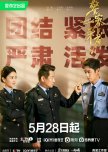
The sum of ordinary is great.
Wow. I did not expect to enjoy this drama so much. In fact I didn't expect to get past the first episode. But I just had to check it out for the spectacular cast. And I am well chuffed that I did. It is the most eloquent and engaging low concept drama made in years.Wang Shouyi is chief of the chronically short staffed Bailihe People's Police station. With a 93.4pct community satisfaction rate, they rank 144 out of 163 in the district. These are not elite cops trying to solve major crimes. They are just ordinary cops that grapple with mundane, daily cases from petty crimes to heated community spats. The denizens of their community are a loud, colorful, chaotic, demanding, often ignorant, unreasonable and utterly exasperating lot. This is written authentically with a strong dose of humor and irony that garners big laughs from small things such as an absurdly moving case of diaper theft. It is an intricate, intimate account of the broad array of everyday social pressures experienced by Chinese society. This brilliant, unglamorous drama that feels like a shared coming-of-age experience traverses the bleakest, most flawed to the greatest, most compassionate aspects of humanity.
Wang Jingchun's canny Chief Wang is the star of the show. He badgers his director into assigning four new recruits with diverse abilities and backgrounds to his station. With wisdom and perspicacity, he assigns an experienced mentor to each of the bright eyed and bushy tailed young recruits. This excess of greenness and enthusiasm is met with a mixture of annoyance and trepidation by the battle hardened veterans. Prodded along wisely past hiccups by Chief Wang, adjustments are needed on both sides to make these seemingly random pairings work out. Over time, their shared trials and triumphs end up being a catalyst for character growth all around.
Xia Jie's father, the former well loved chief of Bailihe station perished in the line of duty ten years ago. Her mentor Cheng Hao was mentored by her father and like Xia Jie, seeks closure from what happened so long ago. She is treated like a protected species by her father's comrades and her mom hounds the station to keep her out of harm's way. My blood boils every time her mom goes on a rampage. But as much as I am frustrated and angry at her, I can't help but be moved by her sheer terror and deep sorrow, at how time did not ameliorate the shock and intensity of her loss. I really applaud Bai Lu for her true to life portrayal of Xia Jie's struggle to make peace with the past, find meaning in her role at the station and built life bonds with her peers. I also love that the drama only hints of awareness that could blossom into romance down the road but keeps the primary focus on the camaraderie and burgeoning mutual understanding that turns the four young friends into found family.
Liu Dawei is the other super solid characterisation of a young cop with rough edges that offers the barest glimpses of another Chief Wang in the making several decades down the road. On paper, he is the least promising recruit, a trouble maker at the bottom of his enrolment class. But he has high EQ and it is as much his kind nature as his inherent nosiness that gets him embroiled in everyone's business. His mentor Chen Xinsheng is initially very irritated to be saddled with this brash and over talkative young man with an instinct to rush headlong into danger. Their relationship and how it evolves on multiple fronts and interlocks with the other characters is the best written and portrayed dynamic in the drama. This is not at all surprising that magic happens when you put together immersive and versatile actors of Zhang Ruoyun and Ning Li's caliber.
Xu Kaicheng also delivers a very respectable performance as the book smart Yang Shu, the perfect foil for the street smart Liu Dawei. His struggles with Cao Jianjun his ethically flexible mentor with hero complex, is forced at some emotionally complex moments but overall comes off well. He is surprisingly good at comedy - I laughed the hardest when he is pimped out by the station as an undercover gigolo. I also much enjoyed the stingy Zhao Jiwei's great relish and talent for self criticism and his eye for detail in the cracking of the diaper theft case. This memorable ensemble cast would not be as well rounded out or grounded in reality without Zhao Jiwei and his mentor Zhang Zhijie's focus on how it is the small things that make the biggest difference.
This slice of life drama is far from a fairytale - It doesn't try to suggest that life is fair or bad things don't happen to good people. It resonates because it is simply about coping with life's daily challenges. The outcomes are not always just and success and failure do not necessarily correlated with good or right decisions. All four of these young recruits come with baggage and are mentored by battle scarred veterans with their own issues. Their flaws and personal traumas enable them to process and respond to situations with compassion and compromise and thus not always to the full letter of the law. They may just be ordinary cops trying to be their best selves but together they prove that the sum of ordinary is great.
It is normal for these types of slice of life character dramas to be light on plot but the final arcs do dial up the complexity and intensity of the cases as the young recruits gain experience. While the drama does end at a climax, I would have preferred that they ended this on the penultimate gaslighting/cyber crime case. This drama was never about heroes so I am not sure we need to see history repeat itself with another Xia Jie in the making ten years down the road. It isn't a bad final arc at all it just strikes a bit of an odd note with the rest of the drama. That does not change that this is an immensely enjoyable story that made me reflect a bit, laugh a lot and tear up occasionally. I am rating it my first 9.0 for 2022.
Was this review helpful to you?
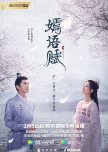
Fresh twists on old cliches.
At first glance, Autumn Ballad looks like just another light historical romance featuring a strong, independent heroine with 21st-century attitudes and aspirations. Yet with a chock full of fresh twists on old cliches, this manages to surprise and delight with an all too familiar tale of a lowly illegitimate daughter who finds love most unexpectedly on her quest for self-determination. This well-told story with an authentic voice is carried by Xu Zhengxi and Qiao Xin's heartfelt performances which make me invested in their characters before I even like them.What I like most about Qiu Yan is that she is really not that nice or always that smart. Phew, what a welcome relief from the all too common suffocatingly flawless heroines. This is where notably Yu Zheng's recent, much higher budget projects fall way short by comparison despite big-name actresses. Trapped and exploited by her low birth status, Qiu Yan is the anti-Cinderella - her stepmother is her fairy godmother; she gives as good as she gets to her step-sisters and her mysterious prince leaves her a fan at the stroke of midnight. She tries for the best hand from the cards she is dealt and if she has to use a few people or step on toes along the way, so be it. She can be as harsh, selfish, and unforgiving as she is brave, capable, and loyal. She schemes, miscalculates, and makes mistakes with real consequences for herself and for others. I don't always like or agree with her but can understand her desperation and humanity.
Liang Yi is a pretty gray character which makes him my kind of male lead. Beneath his icy, civilized veneer he is a calculating, manipulative, ends-justify-the-means kind of guy with an agenda and he plays a long game. His path crosses with Qiu Yan repeatedly over the course of his investigations as head of the powerful Firewood Bureau. From the get-go, Liang Yi sees through Qiu Yan's machinations with contempt and tries to frustrate her designs on Qin Xuan. But he stops short of throwing her under the bus, perhaps in silent acknowledgment of his own utilitarian nature. When their interest align they agree to collaborate and are unflinchingly honest with each other about what's in it for them. In doing so, they also reveal the better sides of their nature and as they grow on each other, I fall for them. Qiu Yan is no damsel in distress in need of rescuing and Liang Yi can be as much cad as a knight in shining armor. They are kindred spirits and when they join forces, the sum of the parts is greater than the whole. It is inevitable that conflict and antagonism spark mutual awareness and passion. Their repartee is witty and the dialogue humorously highlights universal truths about human nature and the role of women in society. Is it too contemporary to be realistic? Probably but who cares?
This drama ought to be the gold standard for how realistic, believable relationships should be developed and portrayed. Xu Zhengxi really captures the essence of how Liang Yi's feelings for Qiu Yan evolve from dislike and distrust to grudging respect and consternation when it dawns upon him that he added to her burdens. His ironic, disbelieving expression as he comes to terms with his feelings for her kills me every time. This is by far the best-acted, anchor performance in the drama, elevated by the OTP's undeniable screen chemistry. While Qiao Xin stages a convincing, empathetic complimentary act, she falls short in her crying scenes.
The supporting characters are also mostly well-written and I particularly appreciate the balanced point of view with respect to the sibling rivalry between Qiu Min and Qiu Yan. Both Qiu Min and Qin Xuan are less thoughtfully written but despite their character flaws, they both get a pretty raw deal. The writers seem to know how to design layered and interesting characters but don't know how to finish their stories. Too many characters get outcomes (good and bad) that are underserved. There are so many gratuitous deaths I wonder whether they were running out of money.
Though far from a masterpiece of suspense and intrigue, the overarching conspiracy that loosely connects the cases moves at a fast pace and is quite well conceived and not just contrived to allow the couple to discover each other. It is a story that has enough momentum and characters with agency that the ending should write itself. Instead, with about 6 episodes to go, the writing inexplicably deviates into flashbacks, forced angst, melodrama, and excessive plot twists that culminate in a just barely satisfactory ending. If not for the sag towards the end, I would rate this production that shines in spite of its modest budget better than a very enjoyable 8/10.
This is not a fairytale but that is what makes it so much fun. It is well worth watching for the fascinating and hilarious relationship dynamics alone.
Was this review helpful to you?
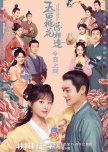
The meek shall inherit the earth.
This is a very funny, romantic romp through the antics of an unlikely couple in a marriage of convenience that turns into the real thing. Xu Qingjia is a talented young scholar who jilts a highborn lady to fulfil an old promise to marry Hu Jiao, a butcher's daughter. At surface, they could not be more different - he is book smart, humble, meek and measured in his actions while she is street smart, commercial, direct impulsive and a total gangster when provoked. As Qingjia hilariously navigates the challenges of his new assignment as a backwater county magistrate, they discover their differences are complementary and where it counts, their core values are the same.The surrounding plot of this drama is yet another age old corruption case involving the previous generation with some decent twists. What's different about it is that it unravels slowly over the daily lives and trials of a group of humble merchants and working level government officials. The characters are colourful, often comical and avoid the most cringeworthy familial and love rival archetypes. The romances unfold at a realistic pace and have an honest, down to earth appeal about them. No one character is super smart, infallible or is the main driver of the plot. They all have strengths and weaknesses that make them at times succeed and other times fail. But together it is immensely satisfying to see their combined abilities enable them to prevail over the petty neighbourhood bullies, business rivals and corrupt politicians and win the day with their sincerity, persistence and hard work - the meek shall inherit the earth. Best of all, the ensemble cast is fun, witty and can be very, very funny without being slapstick.
I wouldn't say that the actors are among the best out there (its so great to see Tong Meng Shi/Uncle Wu Zhu from JOL as ML) but everyone delivers very solid performances and the cast somehow just "clicks". I really love how Tong Meng Shi manages to convey the henpecked husband with immense inner courage. Although not a huge Baby Zhang fan, I think she also managed to play the husband training shrew while retaining her femininity. I really enjoyed Gao Zheng and Yu Niang's story as well and I think the casting of Hu Jiao's bovine butcher brother is simply brilliant I laugh just looking at him!
This lively, riotously humorous watch that conveys some grains of wisdom about honour, friendship, love and marriage is a fantastic way to pass some time. I rate it a very enjoyable 7.5/10.
Was this review helpful to you?
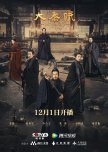
When you play the game of thrones, you win or you die.
Qin Dynasty Epic, the fourth and final installment of the highly regarded Qin Dynasty series, is about how Yin Zheng fulfilled "Heaven's Mandate" to unify the Warring States (475-221 BC) and became the first emperor of China at age 38 in 221 BC. Such a monumental task was not achieved without the vision and dedication of many great talents from brilliant tacticians, crafty spies, talented engineers and powerful generals. These characters that made it all possible and how they were pitted against wily and determined opponents from six rival kingdoms is magnificently and vividly brought to life in this stunning production.The production values are very high and there is extraordinary, game of thrones worthy battle footage against some truly breathless backdrops that convey the epic vastness and splendor of the empire. In-depth research and meticulous attention to detail are evident in the costumes, the weapons, the sets and the authentic portrayal of military strategies, diplomacy, espionage, the economics of funding prolonged warfare, the evolution of a common script, immigration and the consequent racial frictions and the conflict between meritocracy and legacy. These themes are seamlessly woven into the visual storytelling in a way that you cannot miss the natural, impenetrable mountain fortress that is Hangu Pass and the Qin life size battle map that further reinforces the topological and geographical advantages of the Qin state.
This is a historical drama but if you are not familiar with Qin history, then be warned that there are mild spoilers in the paragraphs ahead.
Duan Yihong's delicious portrayal of Lv Buwei, venal merchant turned kingmaker and indisputably one of history's great adventurers anchors well over half the drama. His economic reforms and policies paved the way for the eventual unification of the Warring States well before Ying Zheng's conquests began. This is the best written and best acted role in the drama that literally steals the show. This wonderfully grey character that was so inspired by a vision bigger than himself that he actively recruited and promoted the best talent even against his own nature and interest, notably in the case of Li Si. Their scheming both as rivals and allies and mutual respect despite their differences is one of the most complex and riveting portrayals in this drama. I find Li Si the character insufferable and while Li Naiwen's acting is good, it is not quite on par with that of Duan Yihong. Even though I think the drama ends at the right place, it is a pity we don't get to see the irony that Li Si whose life work was Qin's unification may have brought about Qin's rapid downfall with his cruel interference in Ying Zheng's succession. I love that this drama properly credits both Lv Buwei and Li Si with many of the lasting reforms made during Ying Zheng's reign; indeed many (not all) were well underway while he was still a powerless boy king.
The most slanderous and malicious accusation in Sima Qian's Shiji (史记 or Records of the Grand Historian) is that Ying Zheng was in fact Lv Buwei's son; that his former concubine Zhao Ji was already pregnant when she married Ying Yiren. Current historians are rightly skeptical as that would have been a 12 month pregnancy but the drama raises the question head on and leaves room for viewers to decide for themselves. It is likely no accident however, that they cast two actors that bear a strong resemblance to each other as Ying Yiren and Ying Zheng; both in terms of stature and elongated, elegant facial features and in sharp contrast to both Zhao Ji and Lv Buwei's more common rounded features. The desire to put both actors side by side results in the drama's biggest judgement error of having a 40 year old man play the 13-year old Ying Zheng. This is a tall ask of any actor and Zhang Luyi did the best he could but it isn't until well over halfway through the drama that the character's age catches up with that of the actor. In a misguided attempt to make Ying Zheng more relatable, we suffer through some unfathomable cringe dialogues as the obviously middle aged Zhang Luyi plays an adolescent Ying Zheng who is bullied, questions his legitimacy, experiences infatuation and grapples with his mommy issues.
In an attempt to appeal to broad audiences, the drama over-indulges in the salacious Lao Ai/Zhao Ji arc. Zhao Ji is mercilessly portrayed as the wanton, shallow, selfish, reckless and easily manipulated harlot who likely turned Ying Zheng into a misogynist whose women were all anonymous. And while Lao Ai's allegedly majestic physical attributes can never be disproven, he definitely had a peanut sized brain and his attempted coup was puny and nowhere near the scale the drama suggests. Although scandal holds timeless appeal, I am here to watch the first emperor of China, not the first gigolo of China. The time would have been better spent building up characters who become prominent after Lv Buwei's exit and indeed the immediate next 1-2 episodes feel like one hand clapping.
I must mention that Zhang Lu Yi redeems himself with his characterization of the mature Ying Zheng. I was riveted by how he howled like his heart was torn from him when he "fulfilled" Zhao Yan's abominable request only to be overcome with remorse and cowardice when faced with the real thing years later. His portrayal of Ying Zheng's encounter with Jing Ke is also exceptional. That said, I have mixed feelings about how this larger than life figure was written, it somewhat diminishes him. While I like that they humanized him and gave him a benevolent side that is at odds with countless other depictions, I wish they went with a bolder, more controversial interpretation by balancing that out with some vices and a more ruthless, darker side as well. I didn't need to see him cook scholars but even how he dealt with Lao Ai's kids was just glossed over, not to mention his legendary harem and his intense superstition. The real Ying Zheng is probably turning in his undisturbed tomb at this millenial, tree hugging, touchy feely characterization that robs him of the requisite ruthlessness to do great and hard things.
While there are many epic battle scenes the unification wars were fought just as much behind the scenes as on the front lines as all warfare is based on deception. By the time Yin Zheng took over, the six kingdoms appeared to be largely sitting ducks but nonetheless, they put up a really good fight. While the conquest of the remaining kingdoms after Zhao (especially Chu) feels a bit rushed, all the important moments are there. I really felt for the vanquished in this show, was moved by their desperate causes and teared up at their inevitable defeats. The sense of loss experienced by the de-throned young Zhao king with his mother and uncle as regent could have well have been the young Ying Zheng. Under resourced, out smarted, undermined by their own and with the odds against them, Li Mu, Prince Fei and Prince Dan still fought bravely and valiantly. But when you play the game of thrones, you win or you die.
One of my favourite Cantonese expressions is 七国咁乱 which roughly means as chaotic as the warring states. I always find making sense of that messy, turbulent period of Chinese history so mind boggling that I cannot praise enough the clean, smart way this drama's narrative navigates the multitude of important events and characters that lead to the unification of China under Qin and the reforms and contributions that lasted thousands of years. Yes, there are some flaws, some missed opportunities and digressions that do not detract much from this sumptuous and enveloping historical drama that makes this a very solid 9.0 for me.
Was this review helpful to you?

Dumbed down to the point of fatousness.
Let me keep this short to avoid wasting more time on this mind numbingly boring 39-episode revenge drama that was 40 episodes too many. The original works The Emperor's Book 帝皇书 is a dark and complicated tale of a love, duty, revenge and atonement. The adaptation has been dumbed down to the point of fatuousness in a misguided attempt to make the intricate plot more accessible. The broad plot outline is unmistakably Nirvana in Fire lite with swapped gender roles and a ton of romance.The bright, over-lit palette sets the wrong tone for this kind of dark story of betrayal from the get go. The action heavy open sees swashbuckling badass pirate Ren Anle proposing to crown prince Han Ye with her dowry of 30,000 elite sea troops. Despite Dilraba's impressive flirting skills, Anle's shameless pursuit of Han Ye went on for too long and seems heavy handed. There isn't much natural spark between her and Gong Jun even though they look fantastic together. Despite her exquisite beauty and charisma Dilraba's acting in this is disappointing. She comes across as someone who never suffered or experienced profound loss. Her best distressed or traumatized expressions smack of someone whose favorite pair of Jimmy Choos got muddied; a far cry from someone whose entire clan down to nine generations got unjustly wiped out. The collaterally damaged characters Luo Mingxi, An Ning, Lin Lang and even the delusional Chengán are more convincing as deeply scarred and haunted by the Di family massacre. To be fair, the titular role of Anle is not well written. She barely gets to do any of the hard stuff. Everyone from Luo Mingxxi to An Ning steals her thunder in terms of the scheming, making ruthless decisions and even fighting.
"My heart was once stirred by a woman called Ren Anle, but all my life I will protect Di Ziyuan/ 我对一个叫任安乐的女子动过心,但我这一世都会护着帝梓元" is the novel's best line that encapsulates what Han Ye is all about. If Gong Jun had to get one line right, it was this one. His expressionless lacklustre delivery of this line epitomizes his vacuous, uninspired acting throughout. The only characters that made me care are Wen Zhou and Lin Lang. Liu Yuning also does a decent job largely because he dubbed himself. Sadly his character has no development and doesn't do much other than to mope and slouche around plotting with a sinister twisted smile on his face.
There is too much standing around and talking in this drama but there are only a few good lines that are repeated ad nauseum. Of course the Di family army lost 80,000 troops; more than the 70,000 strong Chiyan army! The sheer hubris and audacity of these third tier writers to repeatedly allude to a masterpiece and hint their Di family suffered more is pathetic. They neutered an amazing plot and weighed it down with a pedestrian rendition of the Romeo and Juliet trope. The revenge arc climaxes too early and the showdown lacks intensity. The narrative further devolves into a bunch of silly sub-plots that are just juvenile attempts to squeeze some angst out of viewers by unimaginatively throwing a few characters off a cliff and killing a few others gratuitously. This just made me laugh instead of cry. This drama seems to drag on forever to the point that the hair turning white oddly makes sense! Only watch this if you are die hard Dilraba or Gong Jun fans. I rate this 6.5/10.0.
Was this review helpful to you?
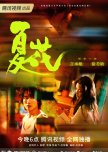
Let life be beautiful like summer flowers...
This tantalizing and poignant love story captures the spirit of carpe diem. It opens with a young girl's chance encounter at the hair salon. She is aroused by a strong and silent stranger from the way he caresses her ears and washes her hair. For most girls, it would stop just there; a titillating fantasy not to be acted upon. But He Ran is not like most girls. She throws herself at Xiao Han shamelessly; not one whit bothered that he is well into his prime. Twist and all, this is a simple and very cliched romance plot that hinges on the chemistry between the leads and whether they can convince audiences to root for them.He Ran's relentless pursuit of Xiao Han can very easily come across as crude and thirsty but Xu Ruohan gets this tricky portrayal mostly right down to the small nuances. She is just an artless young, girl headily experiencing infatuation, desire, and possibly even love for the very first time. She can be incredibly petulant, unreasonable, and childish, like the protected and spoiled little rich girl she is. But she taunts and tempts him with the instinctive provocativeness and burgeoning sensuality of a child-woman. The way she looks at him with her heart in her eyes and the effervescent joy in her smile made me shake my head at the futility of Xiao Han's efforts to evade her charms.
As for Xiao Han, his genuine attempts to resist the ardent allure of this captivating young temptress is just the right touch. He rightly has misgivings - she is too young and they are from different worlds. Xiao Han is a man of few words; a gentle giant who is very still and seemingly unmoved by her attempts to seduce him. Only the smallest microexpressions give him away - the hint of a smile, a tensing of his incredible jawline, a barely perceptible slow sidelong glance, and a whisper of innuendo in his tone. While Xiao Han clearly looks and is more mature, the relationship doesn't come across as exploitative largely because He Ran is the instigator and calls most of the shots. Of course, it helps that Jerry Yan does not look a day over thirty and the only offensive thing about him is how well he wears those sleeveless wife-beater T-shirts.
Their love story unfolds against a lush, almost surreal romantic palette drenched with deep and lush saturated colors of the riotous blooms adorning Xiao Han's intimate seaside home. The couple's sultry chemistry permeates the screen, captured mesmerizingly by the director's avant-garde and sensual visual composition style. The superbly curated soundtrack supercharges the narrative with all the right emotions at every critical juncture. I was invested in their romance the moment I heard the first song, Cantopop hit (半點心 A Drop of Your Heart). At the time, they had barely even met! I am so busy being a Peeping Tom that it takes me a while to notice that the plot doesn't move much. He Ran is just escaping into Xiao Han's world and their relationship is built around "ask me no questions and I will tell you no lies". They are both secretive and repeatedly fail to communicate. Thus despite its addictive beauty, theirs does not bear the hallmarks of a lasting relationship.
He Ran and Xiao Han's relationship shortcomings are amplified by the too coincidental to be true gender reversed second age-gap romance. There the couple actually dares to call each other out and are open about themselves and their doubts and constraints. That said, their initial attraction is too tropey and not convincing and it is a major subplot that develops too late in the main plot line; right after He Ran and Xiao Han's relationship peaks. This long-winded and often boring digression annoyed me and disrupted the momentum of the main romance. Their sizzling chemistry also highlights a more adult passionate intensity that seems missing in He Ran and Xiao Han's encounters.
The Chinese title of this drama 夏花 / Xià Huā or Summer Flowers, comes from Rabindranath Tagore's poem "Let life be beautiful like summer flowers..." After Shakespeare, Tagore is the most widely read and well-loved foreign poet in China. Thus there is already a lot of foreshadowing in the Chinese title. But I think it is not that important how He Ran and Xiao Han's story ends. Because the story's real message is about living in the moment and daring to live and love with no conditions or expectations for the future. That they did and like summer flowers, their love bloomed with wild abandon drenching the earth with the radiant, ecstatic colors of beautiful life. With a little bit of help from Uncle Han, who is just the best fairy godfather ever.
As for the ending, I didn't like it. Not at all. It diminishes both main characters. It is why even though I love many parts of this drama, I can only rate it a 7.5. A better ending would have gotten an 8.0-8.5 from me. I will elaborate on why I am so disappointed in the ending below. It is of course a major spoiler so please don't scroll down if you have not finished watching the drama.
Warning - major ending spoiler way down below.
Major Ending Spoiler
To me killing off a character is a lot better than killing the character of the character. And that is what leaving the door open for some ambiguity does - both He Ran and Xiao Han's characterizations suffer as a consequence. The ending should have been clear and decisive. The drama consistently builds up to it. This loosey-goosey ending makes the timeline messy and creates unnecessary loose ends. Did Xiao Han not accompany He Ran to seek treatment? What about his promise to care for her? Surely he was not growing flowers at home while she was fighting for her life thousands of miles away. But what really takes the cake is He Ran's unreasonable demand that Xiao Han waits for her and loves no one else. It is utterly selfish and insensitive. What if his first love had demanded that of him and he never gave He Ran the time of the day? Dying is easy, it puts her beyond all further suffering and emotion. From then, the suffering begins for the survivors. She sets her mother free but poor Xiao Han is supposed to miss her for the rest of his life? Did she ever even truly love him? Wow! This cop-out ending made me intensely dislike He Ran instead of remembering her poignantly as the brave young girl she was at the beginning. A girl who chose to live life gloriously if briefly instead of wallowing in self-pity.
"Let life be beautiful like summer flowers and death like autumn leaves." - Stray Birds by Rabindranath Tagore
Was this review helpful to you?

The saddest happy story.
This is a very simple, funny, and moving story. Twenty-five-year-old Qi Shuo is utterly devastated when his mother Qi Yue dies at an early age after a difficult life. He travels back in time to change her life. The teenage Qi Yue is just a somewhat lonely, happy-go-lucky young girl with no goals or ambitions. She hilariously accepts that she has an adult son and after some initial reluctance, happily goes along with his machinations without looking too deeply into his assertions. She is that kind of oddly naive, scratch-on-the-surface, go-along-get-along kind of person, which is why her life gets so messed up. Qi Shuo is determined to make her go on to university and marry Lu Xiao, a gifted physics student and more importantly, a good man.The unconventional, comedic, and touching mother-son dynamics between a young man who cajoles, threatens, bullies, badgers and manipulates his teenage mother in line is the best thing about this drama. Qi Yandi and Liu Yitong's heartwarming chemistry and goofy humorous antics as they pursue Lu Xiao had me in stitches. This trio of young main actors really impressed me with their spontaneous and brilliant use of comedy to convey deep emotions. Arguably Lu Xiao is the less interesting role but Wu Difei hits all the right notes with his portrayal of a goofy, romantic and insanely hot nerd. The way his Lu Xiao silently sees everything and steps up to take the baton from Qi Shuo adds a resonating depth to this otherwise archetypal character. Qi Landi also compels as the effervescent Qi Yue who each time lives joyously in the moment, oblivious to any undercurrents until after the point of no return that leaves her shattered. But it is Liu Yitong's stunning portrayal of the quirky, intelligent, diabolical and selfless Qi Shuo, a young man-child that completely floors me. His Qi Shuo is a character that makes me want to laugh as hard as I want to weep. His impish, unadulterated joy as he basks in Qi Yue and Lu Xiao's happiness and affection with the barest sheen of moisture in his eyes is iconic. There is no justice in the drama world if this young actor doesn't go places.
This is a very entertaining and very funny drama that makes it easy for me to forgive its flaws from the choppy editing to some plot holes. It is not perfect and there are some digressions that including Qi Shuo's mini romance that are unnecessary. Even though unlike Qi Yue, I could see the inevitable ending speeding toward me like the white truck of doom, I was still shaken. Despite disconnected cuts that suggest the heavy hand of censorship towards the end, the final message remains intact - " The past is already gone, the future is not yet here. There's only one moment for you to live and that is the present moment" - Buddha.
This is far from a perfect drama but it is still a story that will stay with me for a long while. It is quite simply the saddest happy story about the absolute, unconditional love between a child and their parent. I rate this as a very heartwarming and funny 8.0/10.0.
Was this review helpful to you?
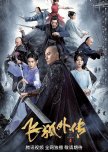
You can't bring a sword to a gun fight.
Like many wuxia fans, I consider Jin Yong / Gum Yoong (Cantonese) the greatest wuxia writer of all time. Side Story of Fox Volant 飛狐外傳 is one of his early works. It was written shortly after The Flying Fox of Snowy Mountain 雪山飞狐, which is both a prequel and a sequel. Unlike many versions that combine both novels, Side Story of Fox Volant is adapted as a stand-alone story. Despite some meaningful changes, this adaptation captures the essence of the original story, the spirit of martial heroes or daxia/大侠 and the vagaries of jianghu/江湖.The drama is action packed with fast paced, intense, starkly violent and brilliantly choreographed combat sequences that will satisfy any hard core wuxia buff. Slow motion is used sparingly for maximum brutal impact. No one has magic qigong or special powers. The main fighters - Hu Yidao, Miao Renfeng, Hu Fei and Tian Guinong are swordsman with distinct combat styles and battle advantages. When they clash it is very muscular and lethally up close. The nimble Yuan Ziyi's weapon of choice is a whip, which minimizes close encounters to compensate for the physical disadvantage of being a woman. With each episode I think the action has to be as good as it gets but to my surprise and delight, the production keeps delivering into the final wulin arc. The wulin arc in terms of both plot design and action is the best I have seen. While Miao Renfeng and Hu Fei's martial teamwork in episode 22 may be the best of the best, the ending battle encounters are inventive, exhilarating and savagely satisfying. The action scenes are this drama's strongest point and are worthy of multiple thrilling re-watches.
I am not a fan of the trend of whitewashing characters, especially Jin Yong's characters. Jin Yong is the master of multi-faceted characters. His heroes are flawed. His villains have redeeming features. Nobody is perfect in the Jin Yong universe. So when writers have the audacity to tweak his characters, they usually muck it up. When it comes to earlier, less refined works like this, I don't mind so much as there is room for improvement. While this version does a good job with Yuan Ziyi, Hu Fei is disappointingly adapted beyond recognition. The attempt to make Tian Guinong and Nan Lan empathetic is nauseating and boring. This is one of the four don'ts Jin Yong specifically warned against in the preface to the latest edition of the novel.
This is one of the author's darker, more cynical works. Most of the characters love too well but not wisely - Hu Fei, Miao Renfeng, Cheng Lingsu, Ma Chunhua, and Nan Lan. The heart wants what the heart wants, consequences be damned. Nan Lan and Ma Chunhua are selfish and don't care who they hurt in the process while Cheng Lingsu, Hu Fei and Miao Renfeng are noble idiots. They all pay a terrible price for following their hearts. Yuan Ziyi is the only exception; she dares only to hate but not to love.
Yuan Ziyi is one of Jin Yong's most under appreciated and saddest heroines. She is the only heroine who is not an extension of the hero; she is on her own independent path to salvation. Born from an act of violence, she is consumed by self loathing; doomed by unkind karma to seek justice and then live a life of atonement for the sins of her father. In the context of her beliefs, if she breaks her solemn oath she will only prolong her bad karma. In the novel, she acts out and does very controversial things. These actions drown out her piteous backstory and make her a widely disliked character. This adaptation deftly writes out those events, enabling us to see her in a more empathetic light. Her shifu should have been left offscreen as her pressure obscures Ziyi's own resolve to keep her vow. I always feel terribly sorry for Ziyi; she never had free will. She is alive but she does not live. I am not sure that chanting sutras into oblivion is a better fate than death, which is final liberation from all suffering. I don't love Liang Jie's acting but her Ziyi impressed me. The slightest shadow of regret in her eyes in a stone cold face and her ability to convey so much beyond her words moved me to tears several times.
Even though Cheng Lingsu is a clever character, I never found her relatable because her entire reason for existence is Hu Fei. But to my surprise, I like Xing Fei's warm and personable rendition of Lingsu. Her Lingsu is devoted to Hu Fei without coming across as a doormat and she gets him out of many tight spots with her quick thinking. The complex entanglement between the three of them is well portrayed. Hu Fei's chemistry with Ziyi is tangibly different from his dynamics with Lingsu, making it immediately obvious who he loves and who loves him. He is much more of one heart with Ziyi and they instinctively act in unison with little need for communication or explanation. Whereas Lingsu is constantly reining Hu Fei in and giving him instructions that are at odds with his natural instincts. When he can't help disobeying, he appears reckless and unintelligent. This character flaw arguably contributes to what happens to Lingsu at the end. There are better ways to show that Hu Fei is less in sync with Lingsu without throwing his character under the bus.
Lin Yushen's Miao Renfeng steals the show in this drama. Criticism that his Miao Renfeng is too much like his Yang Xiao in Heaven Sword is fair but he is so cool and he pulls off the character's inner conflicts and emotions so well that I don't mind. This performance anchors the drama for he is the martial hero of this story, His code of honor demands that he does the right thing even when it is the wrong thing for himself and those he loves. I wouldn't object if they call this the Legend of Miao Renfeng because of this compelling portrayal of what it means to be a daxia. Even though he is movingly handsome when he is suffering, the story wallows in Miao Renfeng's betrayal and loss for too long. The tawdry Nan Lan/Tian Guinong arc is a boring extended digression. The opportunity missed is that Hu Fei and Miao Renfeng do not get enough scenes together. They have remarkable combined chemistry and their joint fight scene is the one of the drama's best.
As for the titular character Hu Fei 胡斐, (which is a homonym for fox volant or flying fox), I always loved his character design. Far from being infallible, he is a work in progress - young and smart with tons of potential but a bit hot headed and too idealistic. He is the people's hero; the guy who demands justice for the underdog regardless of the cost to himself. His best traits, this strong sense of righteousneous and his willingness to fight the unfair fight is dumbed down to recklessness and even stupidity in this adaptation. He is written off as a bull in the China shop whose hot headedness could wreck the Red Flower Society's mission to save wulin. He doesn't accomplish much on his own and without Ziyi and Lingsu, he'd have died many times. It does not help that despite his phenomenal acting, Qin Junjie looks a bit too mature to play an 18 year old.
Despite good pacing, the plot digresses into too many dull sub-plots and arcs. This is an issue with the original work, which this adaptation already cleans up considerably. The Nan Lan and Poison Valley disciple arcs are the least interesting and Hu Fei deserves to be less peripheral in the reveal of the conspiracy behind Hu Yidao's death. The wulin arc brings the story to a climax, one that exceeds that of the novel on some fronts but is a let down in other aspects. Good characters die in wuxias, it is par for the course. But their deaths must be worthy and not gratuitous. What I dislike most about the ending is that it unnecessarily sacrifices a knight errant after they capture the king. It is a futile sacrifice because you can't bring a sword to a gun fight. Sadly, the advent of guns heralds the demise of jianghu and martial heroes.
This is a good adaptation overall that is limited by original works that lack the finesse of Jin Yong's subsequent masterpieces. The novel is already too dark and unbalanced. It is not necessary to outdo Jin Yong in how incredibly cruel he is to Hu Fei. Despite its darkness, the novel still ends on a note of optimism because Hu Fei's journey continues. But in the drama Hu Fei seems to be left to live largely in the past with two women, one too old and too icky for him and another so young it would be too icky. Thus to me this is at best an 8.0 in terms of storytelling that I bump up to an 8.5 for the not to be missed fight scenes. Nonetheless, this wuxia takes you on a stirring and addictive journey that is well worth it - as long as you do not need a Disney ending.
Was this review helpful to you?

In the land of the scorpion the rooster is king.
This drama adapts Wei Yu's well loved romantic and suspenseful adventure novel Xī Chū Yù Mén /西出玉门 or West out of the Yumen (Jade Gate). The spirited and mysterious Ye Liuxi's first waking memory is of the desert with scant personal belongings to point to who she was and where she is from. A picture links her to Chang Dong, who lost all he held dear in that same patch of sand. Liuxi persuades Chang Dong to return to that most treacherous part of the desert with her. Together with a team of three others, they set out to crack the mystery of the Yumen Pass. On their quest to face their past, they stumble into a different, frightening and dangerous world where they find love, adventure, friendship and betrayal.The most fabulous thing about this drama is that Ye Liuxi is a force of nature that simply sweeps you away with her beauty, strength and charisma. It is a role that must have been written for Ni Ni, whose portrayal of Liuxi is nothing short of iconic. Bai Yu's rendition of Chang Dong's quiet might and reserved brilliance is the perfect foil for Liuxi's more vivid personality. Their chemistry is so natural and shockingly scrumptious that I replay most of their couple scenes with a silly, lovesick grin on my face. I now have a whole new appreciation for Bai Yu's hotness. The other two romances are quite cute and endearing but neither is compelling or even necessary. Skipping or toning down one or both of these secondary romances could have helped the pacing of this drama.
The acting, rapport and comedic timing of the main cast is terrific and a heavier focus on their friendship over romance would have been no less enjoyable. It was a lot of fun to watch them humorously pull off their clone geminus selves. It is nice to see Jin Han in his element again as a misguided and flawed character. Lu Yuxiao makes an impression again as a young actor to watch. I also found both Gao Shen and Ding Liu's kick ass youthful exuberance a joy to watch. Sadly Meng Ziyi is the biggest let down in the cast. Long Zhi is an interesting role, a character with a world vision and the ruthlessness to achieve it. Sadly Meng Ziyi delivers a shallow and uninspired interpretation with two expressions - stone-faced and pissed off. She manages to turn a layered character into a cardboard and archetypal one. I used to wonder why such a lovely and charming actor didn't get more lead roles. Now I know.
Where this drama falters is in the pacing and narrative style. The transitions between sub-plots are not well handled with abrupt cuts to a side romance or worse, the narrator and the painter in the middle of action scenes or as momentum is building nicely into an interrupted reveal. The world within the Yumen Pass itself is well designed, rich in history and lore and occupied by dangerous and fascinating characters. The world building mostly takes place via exposition and usually right before the viewer needs that information. This kind of heavy foreshadowing diminishes the surprise factor in what comes next. This also comes with few pay-offs; in the end all I really needed to know is that in the land of the scorpion the rooster is king.
Even though this drama wraps up nicely with no major loose ends, the ending is anti-climatic. With one notable exception, most characters have fitting endings. However, the climax on the action adventure side takes place very early in the drama and the main romance peaks shortly after the mid-point. After that, the pieces of the puzzle fall into place and the plot seems to build towards a final, badass showdown that doesn't quite materialise. The writers decided it is better to jaw jaw than to war war which would be fine if this weren't a fantasy action adventure. I am also miffed that my thirst for justice and symmetry that demands some serious loss of limbs is not satisfied, nary a hair was even harmed! I console myself with the fact that the roosters once again show the scorpions who is the boss!
This is a must watch drama for just Ni Ni and Bai Yi's acting and chemistry alone. If anyone else were in the lead roles, I would only rate this an 8.0/10.0 but I am bumping my rating up to an 8.5 to recognize their riveting performances.
Was this review helpful to you?


 24
24 117
117 7
7














